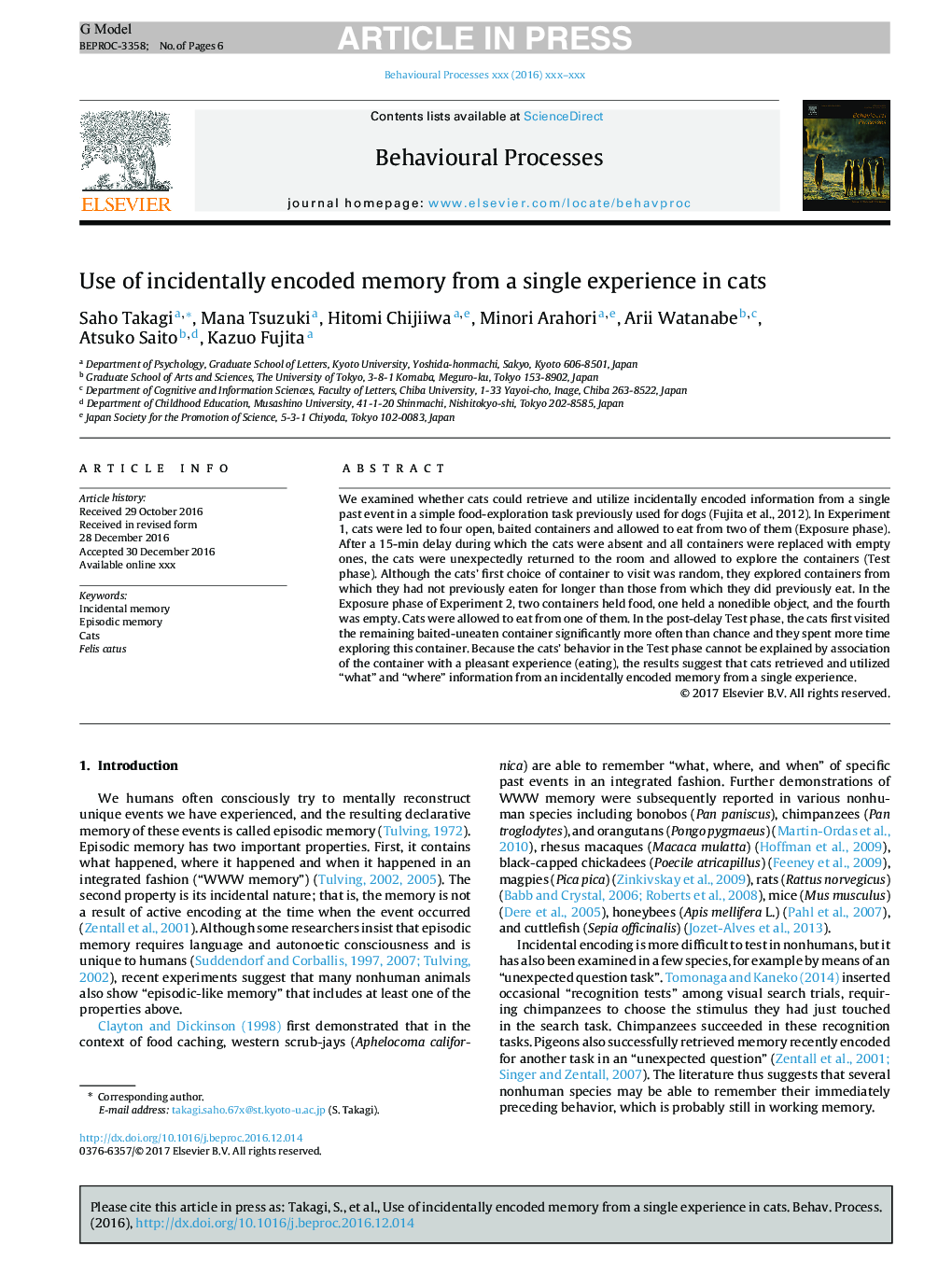| Article ID | Journal | Published Year | Pages | File Type |
|---|---|---|---|---|
| 5539739 | Behavioural Processes | 2017 | 6 Pages |
Abstract
We examined whether cats could retrieve and utilize incidentally encoded information from a single past event in a simple food-exploration task previously used for dogs (Fujita et al., 2012). In Experiment 1, cats were led to four open, baited containers and allowed to eat from two of them (Exposure phase). After a 15-min delay during which the cats were absent and all containers were replaced with empty ones, the cats were unexpectedly returned to the room and allowed to explore the containers (Test phase). Although the cats' first choice of container to visit was random, they explored containers from which they had not previously eaten for longer than those from which they did previously eat. In the Exposure phase of Experiment 2, two containers held food, one held a nonedible object, and the fourth was empty. Cats were allowed to eat from one of them. In the post-delay Test phase, the cats first visited the remaining baited-uneaten container significantly more often than chance and they spent more time exploring this container. Because the cats' behavior in the Test phase cannot be explained by association of the container with a pleasant experience (eating), the results suggest that cats retrieved and utilized “what” and “where” information from an incidentally encoded memory from a single experience.
Related Topics
Life Sciences
Agricultural and Biological Sciences
Animal Science and Zoology
Authors
Saho Takagi, Mana Tsuzuki, Hitomi Chijiiwa, Minori Arahori, Arii Watanabe, Atsuko Saito, Kazuo Fujita,
